Photographs: Anindito Mukherjee/Reuters Aditi Phadnis
Aditi Phadnis in a free-wheeling chat with Telecom and Law Minister Kapil Sibal
Bind if be don't go out? I hab a derrible cold." Telecom and Law Minister Kapil Sibal says. It is a cold, grey November day. He looks miserable: his eyes are red, his nose is running and suddenly he lets out a loud sneeze. It takes all my self-control and good manners not to turn and flee (I mean, colds are the most contagious things on earth - everyone knows that). "Let's hab sobe tea," he offers. After a long, fortifying draught of steaming jasmine tea and a honk as he clears his nasal passages, we're ready to talk.
"You're manning a ministry that is the graveyard of ministers," I say, opening the conversation. "That's what they said about telecom as well," he retorts. "Nothing happened to me."
I point out that you need only to look at his predecessors: in nine years of United Progressive Alliance I and II, India has had five law ministers, including one, Ashwani Kumar, who lasted just seven months. True, B R Ambedkar was once India's law minister but in recent times, the longest-serving law minister has been H R Bhardwaj. "That would make him India's best law minister?" I ask provocatively. Sibal pauses and says, without inflexion, "Well, I would say he had his strengths."
Sibal is one of the more educated law ministers India has had: he qualified for the Indian Administrative Services but opted for a career in law. He has an LLM from Harvard, became a senior lawyer in 1983 and has been India's additional solicitor general. He is cerebral and he knows the law.
...
'My party has a view on Ordinance'
Image: Congress vice-president Rahul GandhiWhich is why there is only one first question about the law ministry: about the Ordinance to protect convicted MPs and MLAs from facing immediate disqualification from Parliament, which should have been torn up and thrown away.
"My party has a view on it. So let's move along, shall we?" he says pleasantly, the effect somewhat marred by another sneeze. He adds: "Only those members of Parliament/members of Legislative Assembly will be barred from contesting who have been charge-sheeted for heinous crimes and where the sentence would not be less than seven years. We will bring a bill in the winter session".
I am irritated. He's not going to tell me what prompted Congress vice-president Rahul Gandhi to launch an attack on his own government without even talking to the law minister. He neither admits nor denies this. "So what do you do in the law ministry all day," I ask rudely.
Sibal is patient. "The 99th Constitution Amendment Bill, 2013, as an enabling legislation for the Judicial Appointments Commission, was passed by the Rajya Sabha in September 2013. I expect it to be passed by the Lok Sabha in the Winter session," he says.
...
'The government must have a say'
Image: A view of the Supreme Court building is seen in New DelhiPhotographs: B Mathur/Reuters
"Oh, the one you had to apologise for?" I say nastily. "I never apologised," he retorts sharply. When introduced, it was titled the Constitution [120th] Amendment Bill, but when passed it should have read as the Constitution [99th] Amendment Bill. The discrepancy -- which had nothing to do with the law ministry -- was immediately seized upon by the opposition for the "patent and technical error" in the title.
"In any case, consider what the Bill will do!" he exclaims. "A Judicial appointments commission will replace the current collegium [comprising five top judges of the Supreme Court headed by the Chief Justice of India] that decides the appointment of judges to the higher courts. The Chief Justice and the two Supreme Court judges will still be on it, but it will also have the Union law minister and two eminent people."
But the bar council is opposed to it, I say, several former Chief Justices, including the last one, have opposed it. They say the collegium worked well. If it ain't broke, why fix it?
"Just as judges have enormous stake in the appointment of judicial officers in the higher judiciary the government has an equal stake. Since both of us have stakes in the appointment of members of the higher judiciary, the consultation of both of them is absolutely necessary. The government must have a say," he says firmly.
...
'Everything the CBI has been doing until today has been illegal'
He ignores my uneducated interjection that considering the effect judicial interventions have had on the functioning of the executive, Parliament and the government might as well be wound up.
“Look at the Guwahati high court judgment, challenging the police powers of the Central Bureau of Investigation. This means that everything that the CBI has been doing until today is illegal," I say.
"The government will appeal against that judgment as early as possible," he says tersely. The government did, later that day.
He lists other changes that are in the pipeline: new Supreme Court Rules to repeal the rules of 1966 vintage. These will have the effect of deleting redundant procedures, making procedural changes aimed at reducing delays, change of fees and charges… in short making the delivery of justice less of a nightmare.
Sibal says 114 high court judges have been appointed in the current year, the highest in 20 years. He also says areas prone to excessive litigation tended to clog the delivery of justice. For instance, cheque bounce cases waiting to be heard were 38,00,000 in 2008. They are down to 22,00,000 in July 2013.
...
'Anybody who spouts untruths is an excellent orator'
Image: Gujarat Chief Minister Narendra ModiTechnology has been pressed into use: for instance to realise fines online from traffic violation. Those cases earlier used to be heard in court. The National Judicial Data Grid will be made operational throughout the country to ensure quicker access to justice.
I ask him about his other charge, telecom, the ministry he inherited with its stellar controversies over telecom spectrum allocations and corruption. "We're going to make a lot of money for the government," he says optimistically of the next tranche of spectrum auctions, even though the reserve price remains a source of fierce debate within the system. "I am expecting anything up to Rs 30,000 crore from telecom auctions."
He adds that the merger and acquisition guidelines have been cleared by the telecom commission and should be out any day. These will allow telecom companies to acquire operators in a manner that market share of the resultant entity does not exceed 50 per cent, thus preventing monopolies, encouraging competition and bringing down prices. "That's in a perfect world," I say.
"We're trying to create a better world, not a perfect one, it cannot ever be perfect," he replies passionately.
A poet, he recites a few lines from one of his poems called "Bataa mujhe main kaun hoon" (tell me who I am): "Soch pe lagam la/irade ko badal zara/naam se nafrat na kar/nafrat sochh ki badal" (curb your thoughts/ change your intentions/don't hate the name/change the thinking of hate).
It is a not-so-subtle reference to the other big issue in India -- the rise of the Bharatiya Janata Party's Narendra Modi versus the idea of India.
I say Modi's rallies are drawing huge crowds. "Mrs Gandhi was in Chhattisgarh the other day. 25,000 people came to her rally. Two thousand and five hundred people came to Modi's," he shoots back. I ask him if his open challenge to Modi to a debate has been accepted. "I'm waiting to hear from him. Modi is an excellent orator -- sure, anybody who spouts untruths is an excellent orator, he says, adding "I want to deal with him on facts."
Our tea is over and he's getting call after call, mainly about the CBI conundrum. I am an inconvenience. Besides, he's starting to sniffle again. "You need to do something about that cold," I tell him. He nods absentmindedly, barely paying attention to my goodbyes as the phone begins to ring incessantly. What else do you expect from the telecom minister!
TOP photo features you missed last week
Click on MORE to see another PHOTO feature...

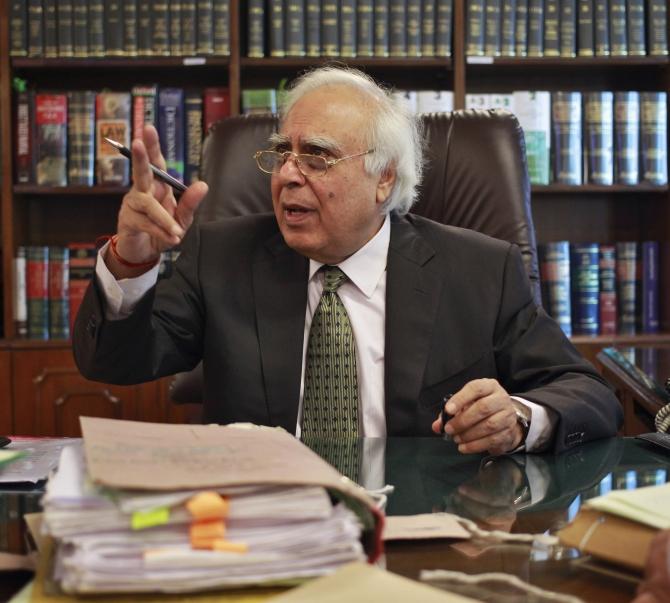
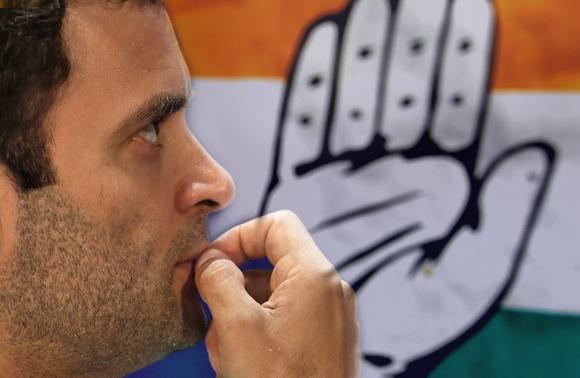
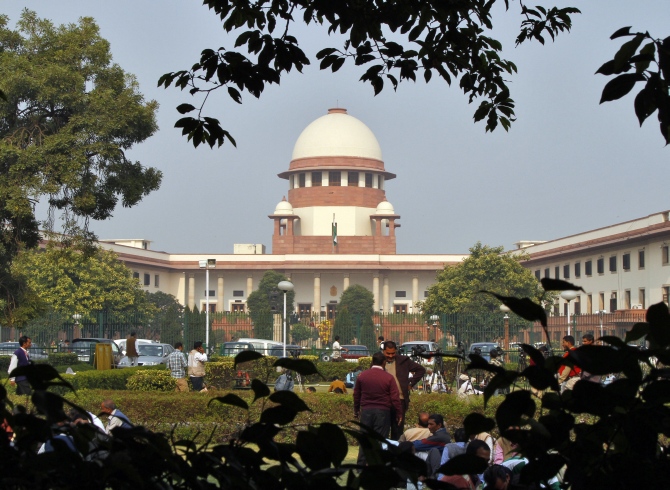
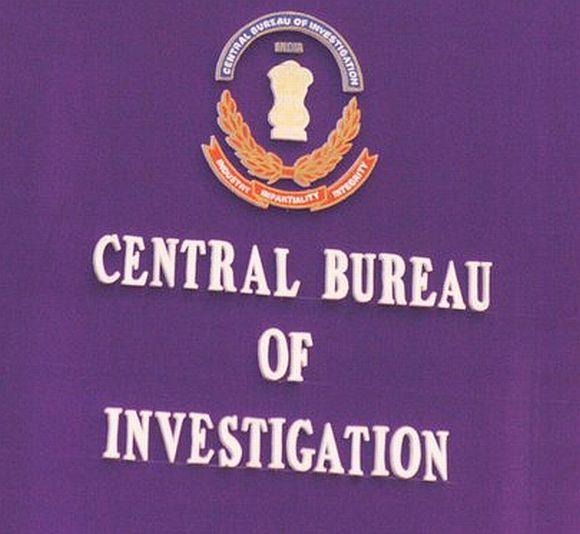
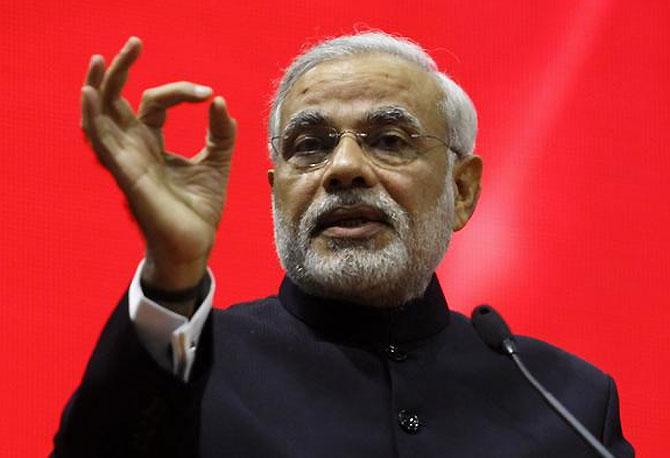
article